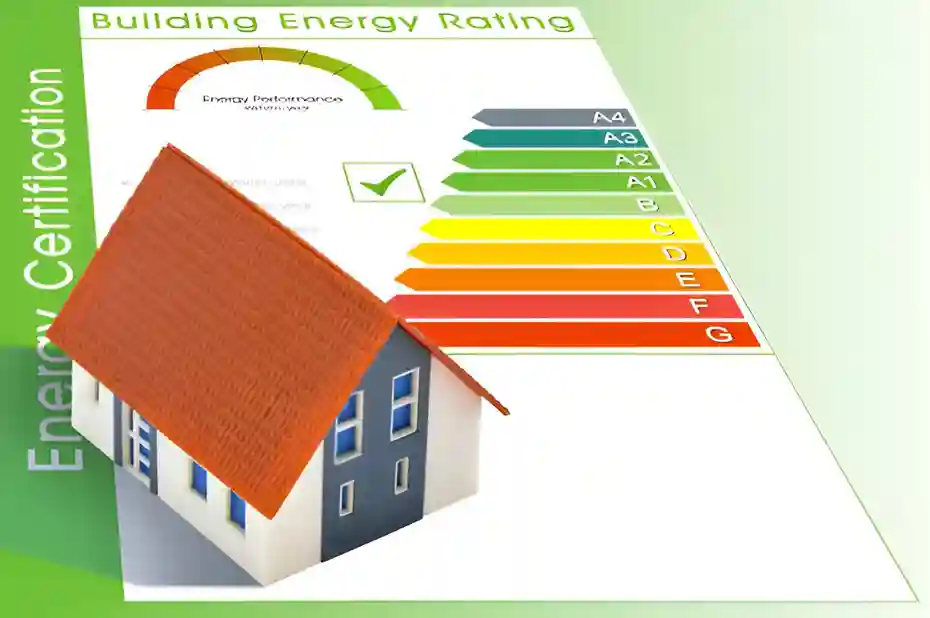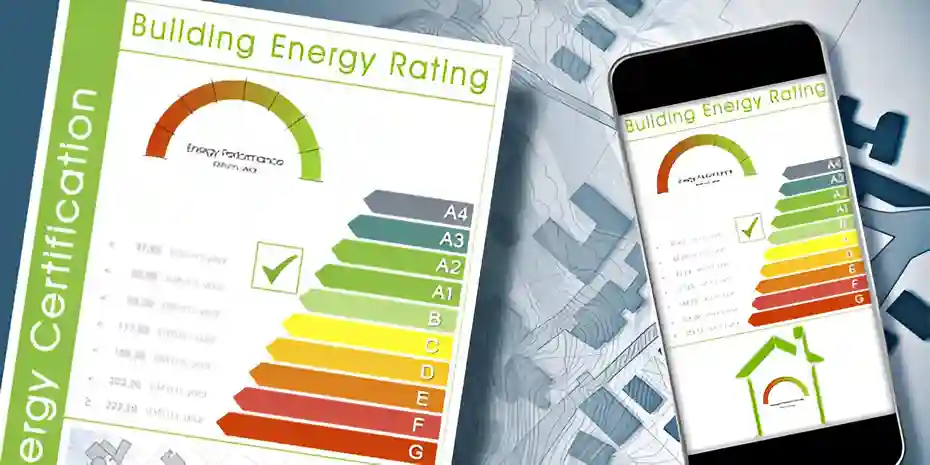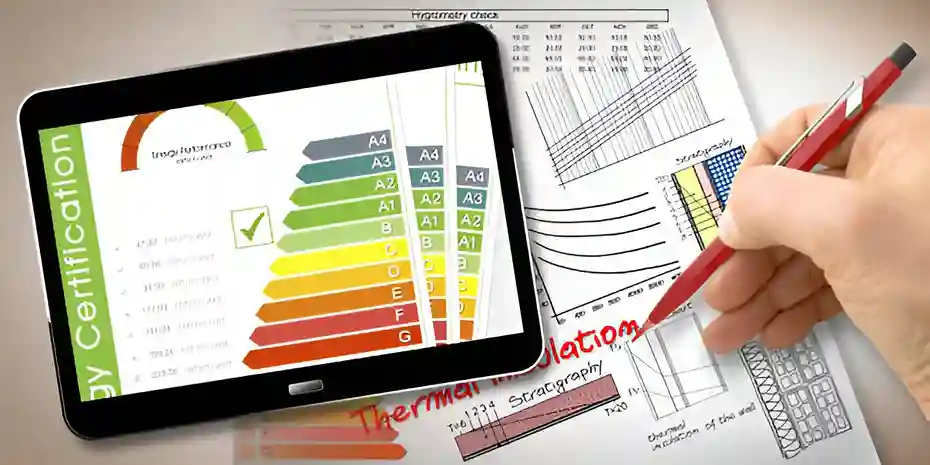
If you’re operating in the property market, understanding Energy Performance Certificates London (EPCs) is essential. These certificates offer valuable information about a property’s energy efficiency and are key to complying with legal obligations. Whether you’re a landlord or a possible buyer, understanding how EPCs affect costs and living conditions is essential.
Main Points
- Energy Performance Certificates London (EPCs) rate property energy efficiency from A to G and are required before selling or renting properties in London.
- An accredited energy assessor is required to issue an EPC, which remains valid for ten years and must have at least a rating of E.
- Upgrading your property’s energy efficiency can lower utility bills, increase value, and enhance marketability while ensuring compliance with legal standards.
- To obtain an EPC, schedule an assessment with a qualified assessor, who will evaluate energy efficiency and suggest improvements.
What is an Energy Performance Certificate (EPC) and why does it matter in London
An Energy Performance Certificates London (EPC) is an essential document that examine the efficiency of your premises. It assigns a rating from A to G, allowing you to gauge how energy-efficient your home or commercial space is.
When considering buying or renting, an EPC allows you to compare properties by their energy efficiency. A higher rating typically indicates lower ongoing costs and a reduced carbon footprint, which is becoming more important to many buyers and tenants. Ultimately, possessing an EPC not only meets legal requirements but also enables you to make well-informed property choices.
Legal Requirements for Energy Performance Certificates London Properties
While traversing the property market in London, it’s essential to understand the legal rules for Energy Performance Certificates London (EPCs). An energy assessor with accreditation is responsible for issuing the certificate, which is valid for ten years.
Properties that don’t meet minimum energy efficiency standards, currently an E rating for residential buildings, can face penalties.
In addition, adhering to the Energy Act 2011 is important, as it not only keeps you lawful but also promotes energy efficiency within the capital. Understanding these regulations assists you in navigating the market more effectively.
How Energy Performance Certificates Assist in Enhancing Efficiency and Lowering Expenses
Understanding how Energy Performance Certificates London (EPCs) can enhance efficiency and cut costs is essential for property owners and tenants alike. EPCS helps identify energy weaknesses in a property, guiding you to make informed upgrades. These upgrades improve comfort and reduce energy bills.
| Benefits of EPCs | Impact |
|---|---|
| Energy efficiency upgrades | Reduced utility costs |
| Enhanced property value | Increased marketability |
| Compliance with regulations | Avoiding penalties |
| Improved comfort | Better living conditions |
| Environmental impact | Lower carbon footprint |
Prioritising these upgrades helps you develop a more sustainable living or working environment while also gaining financial advantages.
Step-by-Step Process for Getting an EPC in London
Getting an Energy Performance Certificates London is straightforward and provides notable benefits for your property. Begin by finding a qualified energy assessor. You can search online to compare their credentials and customer reviews.
Once you’ve chosen an assessor, arrange a suitable time for them to visit your property. During the assessment, they will review your building’s energy efficiency and identify areas for improvement. After the inspection, the assessor will generate an EPC that assigns your property a rating from A to G. You’ll generally receive a digital copy of this certificate within a few days. Please keep it in a safe place, as you’ll need it for future property transactions or rentals.

Who Needs an Energy Performance Certificates London?
Who needs an Energy Performance Certificates London? If you’re involved in property transactions, it is probably a mandatory requirement. Here’s who is responsible for paying attention:
- Landlords: You are required to provide an EPC to prospective tenants before renting out your property.
- Home Sellers: An EPC is essential when selling your home to inform potential buyers about its energy efficiency.
- Buyers: Although not mandatory, having access to an EPC helps you make informed decisions regarding energy costs.
- Commercial Property Owners: If you’re leasing or selling commercial spaces, an EPC is required to comply with regulations.
Understanding EPC Ratings and Their Significance for Your Property
EPC ratings play an essential role in evaluating your property’s energy efficiency, as they provide a standardised measurement that ranges from A (most efficient) to G (least efficient). Understanding your EPC rating allows you to make more informed decisions about energy improvements, lowering your bills and increasing your property’s value.
| EPC Rating | Efficiency Level |
|---|---|
| A | Very Efficient |
| B | Efficient |
| C | Average Efficiency |
Conversely, a lower rating suggests higher energy expenses and might discourage potential occupants. Understanding your EPC score allows you to implement measures to improve your property’s energy performance.
Average Costs of Energy Performance Certificates London
When you’re considering obtaining an Energy Performance Certificates London, it’s essential to be aware of the average costs involved.
Here are some key aspects influencing the price:
- Size: Larger properties typically have higher fees.
- Type of Property: Residential buildings may have different rates compared to commercial spaces.
- Location: Prices can vary based on specific boroughs within London.
- Provider: Different assessors may charge varying rates for the same service.
Understanding these costs can help you budget effectively and guarantee you’re making an informed decision.
The Benefits of a Good Energy Performance Certificates London
Achieving a good EPC rating can considerably benefit London homeowners and landlords, as it not only enhances property value but also attracts potential buyers and tenants.
A high rating demonstrates energy efficiency, which is increasingly important for eco-conscious individuals. This can lead to quicker sales or rentals, helping you avoid extended vacancies.
Additionally, properties with better EPC ratings often enjoy lower energy bills, making them more appealing in a competitive market.
Moreover, a good EPC rating can help you comply with regulations, preventing penalties and ensuring your property remains market-ready.
Common Mistakes to Avoid When Applying for an EPC
Understanding the benefits of a good EPC rating is just the first step; the application process itself can be fraught with pitfalls.
To guarantee you get it right, avoid these common mistakes:
- Incomplete Documentation: Incomplete paperwork can cause delays in processing your application.
- Ignoring Property Details: Failing to describe your property’s features accurately can lead to a misleading rating.
- Not Choosing the Right Assessor: It’s essential to hire a qualified and experienced EPC assessor.
- Neglecting Updates: If you’ve implemented energy-efficient upgrades, remember to update your EPC.

How Often Do You Need to Renew Your Energy performance certificates London?
How often should you renew your Energy Performance Certificates London? Generally, an Energy performance certificates London is valid for ten years. However, it’s wise to contemplate renewing sooner if you make significant energy-efficient upgrades or changes to your property. Doing so guarantees that your certificate reflects the current energy performance.
Here’s a quick overview of when to renew your EPC:
| Situation | Renewal Recommendation |
|---|---|
| EPC is nearing expiration | Renew within 6 months. |
| Major renovations or upgrades | Renew immediately |
| Change in property ownership. | Renew before renting/selling. |
| Significant energy improvements | Renew after completion |
| No changes made | Renew every 10 years. |
Keeping your EPC updated not only complies with regulations but can also enhance your property’s appeal.
Frequently asked questions.
Conclusion
To summarise, understanding and obtaining an Energy Performance Certificates London is essential for anyone involved in the London property market. Not only does it help you comply with legal requirements, but it also boosts your property’s value and efficiency. By following the steps outlined in this guide, you can navigate the EPC process smoothly. Remember to keep your EPC updated and avoid common pitfalls to guarantee you’re making the most of your investment in London’s competitive market.








